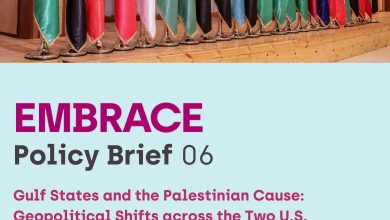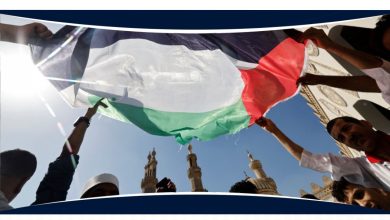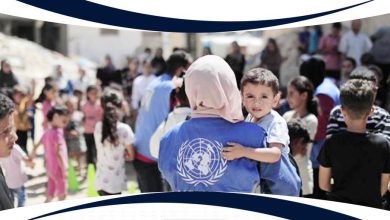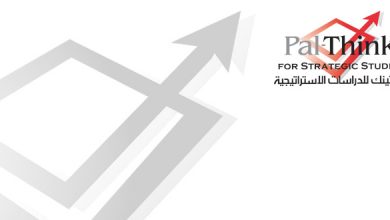Pal-Think Carried Out a Radio Broadcast on Gender-Based Violence and Its Response Mechanism from The Youth’s Perspective
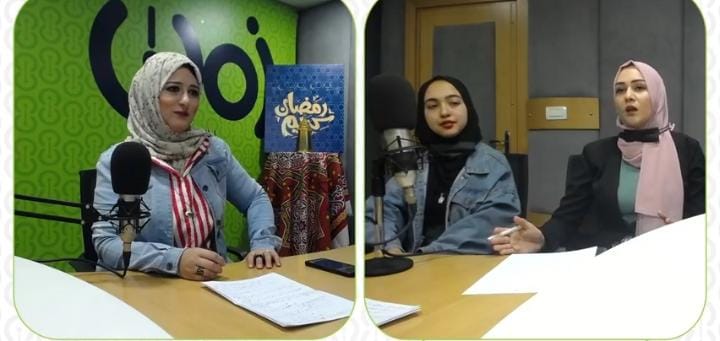
Pal-Think for Strategic Studies carried out a radio episode entitled “Gender-based violence and its response mechanism from the perspective of young people,” as part of its continuing efforts to disseminate and promote youth awareness in Palestinian society. Mrs Tahani Qassem, the coordinator of the Centre for Life to Protect and Empower Families, joined the episode with the two members of Pal-Think’s Civic Education Corps, Ms Hadeel Ahil and Ms Aya Ashour. It is worth noting that the episode was a youth dialogue programme that broadcasts every Sunday through Zaman Radio, as part of the activities of the project. Civic Education Corps, funded by NED, aims to promote the values of democracy and human rights among university students.
The Project Coordinator, Mrs Sally AlSammak began her speech via telephone intervention confirming Pal Think’s faith in Palestinian youth. She said that in its programmes, Pal-Think focuses on developing the capacities of young people of both genders in issues of democracy and human rights through the direct targeting of university students.
AlSammak emphasised that through Pal-Think’s activities and programmes, it seeks to empower young people to become better able to express their issues and problems in society and to give them space to present their opinions and aspirations.
She also stressed the important role of civic education in promoting citizenship, human rights, building civil society and political participation, which was the foundation of the democratic process.
Mrs Sally concluded by saying that the elections were supposed to take place at this time, but they were postponed until the next period, which seems a golden opportunity for youth to learn more about the importance of the elections and to engage more in lobbying and advocacy campaigns to claim their rights democratically.
Then Ms Hadeel Ahil, Pal-think’s Civic Education Corps member, reported that the project targeted 25 youth who were trained extensively on human rights, gender, good governance and rights issues in the Palestinian legal system.
After that, she added that Pal-Think’s directed them to network with the three universities: Al – Azhar, Palestine and Gaza, to target students. Then she added that they had also worked with a number of civil society institutions such as the Arab Fares Foundation and the Palestinian Alumni Association.
Ahil pointed out that there was very effective communication between them as young people, Pal-Think and local universities and institutions. She further stressed that they were in a state of the constant meeting to discuss developments during the outreach sessions.
She continued by saying that at the beginning, students were surprised how a 20-year-old could give a workshop on Palestinian rights, and this opened up new intellectual horizons and proved that young people are well aware of the Palestinian situation and the problems facing the Palestinian cause and civil society.
Ms Hadeel indicated that they had presented a series of workshops on several important topics, such as human rights, democracy, gender justice and advocacy, and had decided to conduct radio workshops to target the widest possible youth audience.
She also emphasized the important role of culture in change by saying that Personally, she believes that the cultural process is an important part of the change, especially as the cultural situation in Palestine is reduced to political and economic conditions. Then she stressed that the educational process through social media, workshops and the media is very important because it draws and targets a large group of people, helps to highlight issues and solve them. Besides, raising young people’s awareness is very important through several available means.
Ahil further said that while 29.9 per cent of Palestinian women have experienced violence, there is a clear lack of official information on the issue of violence against women, and gender-based violence and coping mechanisms are not seen in educational curricula.
Ms Hadeel concluded by saying that the Palestinian Ministry of Culture must allocate funds to carry out workshops and raise awareness about gender-based violence, in conjunction with the media highlighting the issue, and using social media platforms to carry out lobbying and advocacy campaigns.
Ms Aya Ashour, Pal-Think’s Civic Education member, said that they had been all young people, and they had had intensive training in several areas to create lobbying and advocacy campaigns that they put out from a youth perspective. Besides, she pointed out that If they discuss these exercises with their peers from the same age group, she emphasized that this helps them to contribute to finding solutions to these issues so, this qualifies them as leaders in society.
She stressed the high degree of cooperation between the board, as they exchanged training and educational materials and discussed always rights and gender topics. The reason for this was the ease of communication and persuasion that they were all young.
What are the causes of violence in Palestinian society? Ashour replies that men see themselves more superior compared to women and by this, they can control women, educate and instil misconceptions in children, as well as customs and traditions.
She noted that they had encountered difficulties in rejecting their work in disseminating gender equality, as well as the lack of sufficient scientific research published in Arabic on research sites.
The Coordinator of the Centre for Life for the Protection and Empowerment of Families, Mrs Tahani Qassem, said, during a telephone intervention, the causes of violence in the Gaza Strip to the cultural causes of the prevailing masculine outlook, the poor economic and social status of conservation towards women, as well as the legal system that cannot protect them.
She said that the way to address issues of violence is a serious stand by officials and primarily the President to enact laws protecting women in particular and families in general, to reform the social system, to modify the status of women, to reform the legal system and to cast a shadow over Palestinian families. Despite that, she noted that, Incidentally, many women are subjected to violence because of extreme poverty, unemployment, and lack of basic needs.
Mrs Qaseem concluded by emphasizing the role of youth and said the all-civil society institutions rely on Palestinian youth and raise their awareness because they are the instrument of change; So, Institutions always raise their awareness and qualify them even in a simple way, because their role is very important in the process of change.

